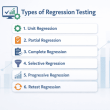Introduction
Are you tired of putting in hours at the gym without seeing any significant results? Don’t worry; you’re not alone. Getting fit is a combination of exercise and nutrition, and neglecting one can seriously impact your progress. That’s why we’ve put together this meal planning guide to help take your workout results to the next level! With smart nutrition, you’ll have more energy during workouts, recover faster after exercises, and see better improvements overall. Let’s dive in!
The Importance of Nutrition in Maximizing Workout Results
The right nutrition is key to getting the most out of your workout. What you eat before, during, and after exercise can affect your performance and results.
It’s important to fuel your body with the right nutrients to support your activity level and help you reach your fitness goals. Here are a few tips on how to make sure you’re eating for success.
Before exercise:
Choose foods that will give you sustained energy throughout your workout. Good options include whole grain toast with peanut butter or a banana with yogurt.
Avoid high-fat meals, as they can slow down digestion and leave you feeling sluggish.
During exercise:
Stay hydrated by drinking water or an electrolyte-rich sports drink like Gatorade. This will help you avoid cramps and maintain energy levels.
If you’re working out for more than an hour, you may need to replenish your glycogen stores with a carbohydrate-rich snack like an energy bar or fruit.
After exercise:
Macronutrients and Micronutrients
There are three macronutrients that the body needs in large amounts in order to function properly: carbohydrates, proteins, and fats. Each of these macronutrients provides the body with a different type of energy.
Carbohydrates are the body’s main source of energy. They are found in foods such as bread, rice, pasta, potatoes, and fruits. The body breaks down carbohydrates into glucose, which is then used by the cells for energy.
Proteins are essential for the growth and repair of tissues. They are found in foods such as meat, fish, poultry, beans, and nuts. The body uses proteins to make enzymes and hormones.
Fats are necessary for the absorption of vitamins and minerals. They also provide energy and help to protect the organs. Fats can be found in oils, butter, margarine, avocado, and nuts.
In order to get the most out of your workout, it is important to eat a balanced diet that includes all three macronutrients. However, you may need to adjust the amount of each macronutrient depending on your fitness goals. For example, if you are trying to build muscle mass, you will need to consume more protein than someone who is trying to lose weight.
In addition to macronutrients, the body needs a variety of vitamins and minerals (micronutrients) in order to function properly. These micronutrients can be found
Hydration
Water is essential for our bodies to function properly and perform at their best. When we are properly hydrated, our body temperature is regulated, our blood pressure is normal, and our organs and tissues function as they should. Furthermore, water aids in the transportation of nutrients throughout the body and the elimination of waste products.
It is recommended that adults consume 8-10 cups of fluid per day, with more being consumed when engaging in physical activity or in hot weather. While water is the best option for hydration, other drinks such as juice, milk, and decaffeinated coffee or tea can also contribute to proper hydration. It is important to avoid sugary drinks like soda as these can actually cause dehydration.
Dehydration can lead to fatigue, decreased performance, headaches, and muscle cramps. Therefore, it is important to drink plenty of fluids before, during, and after exercise. If exercising for more than 60 minutes, consider adding a sports drink to your routine as these contain electrolytes which can helpReplenish lost fluids and prevent dehydration.
Meal Planning for Workouts
Before you start your workout, it’s important to have a game plan for what you’ll eat to fuel your body. That way, you can make sure you’re getting the nutrients you need to perform at your best.
The first step is to figure out how many calories you need to support your workout. This will vary depending on how active you are and how intense your workouts are. Once you have a general idea, you can start planning out your meals and snacks around your workouts.
It’s important to eat something before working out so that your body has enough energy. A light snack or meal that includes protein and carbohydrates is a good option. You should also drink plenty of water to stay hydrated throughout your workout.
Afterwards, it’s just as crucial to replenish your body with the right nutrients. A combination of protein and carbohydrates will help repair muscles and replenish glycogen stores. Eating within 30 minutes of finishing your workout can make a big difference in recovery.
With a little meal planning, you can make sure you’re getting the nutrition you need to support your workouts and see results.
Conclusion
In conclusion, meal planning is an essential part of any successful workout journey. With the right guidance and some dedication, you can make sure that your meals are providing all the nutrients you need to perform at your best during workouts. This guide has covered some key tips for creating a personalized meal plan that’s tailored specifically for your goals and preferences. By following these tips and staying consistent with your eating habits, you’ll be sure to reach your fitness objectives in no time!











